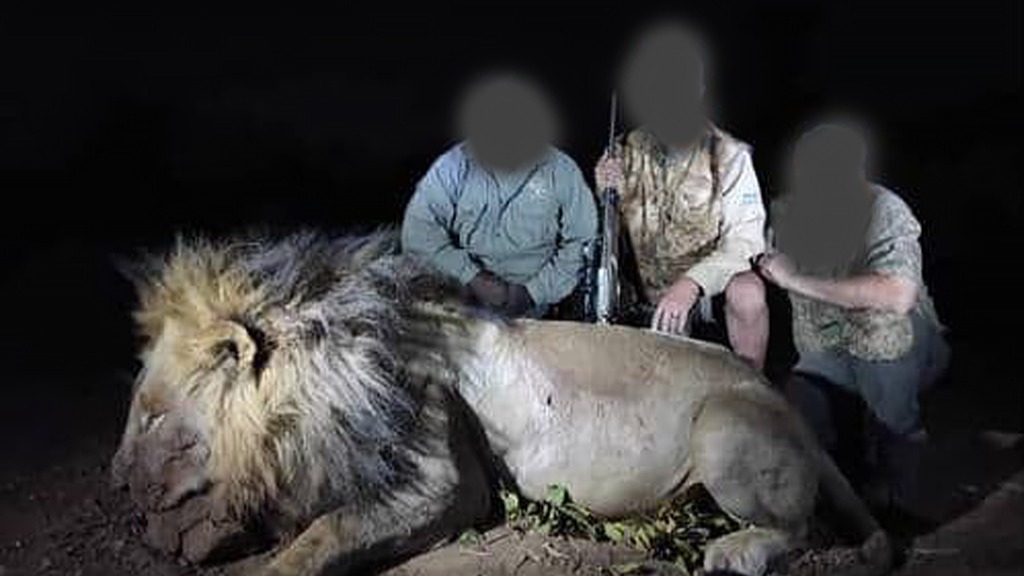A lion who was being monitored by a research project at the University of Oxford is believed to have been killed by trophy hunters in Zimbabwe.
As part of a project, the lion – named Blondie – had been fitted with a GPS collar by experts from Oxford’s Wildlife Conservation Research Unit.
It was fitted to track free-roaming lions, prevent human-wildlife conflict, and support conservation.
The CEO of safari experts Africa Geographic, Simon Espley, which sponsored the collar, said his organisation was “dismayed and angered”.
“That Blondie’s prominent collar did not prevent him from being offered to a hunting client, confirms the stark reality that no lion is safe from trophy hunting guns,” he said.
“He was a breeding male in his prime, making a mockery of the ethics that ZPGA [Zimbabwe Professional Guides Association] regularly espouses and the repeated claims that trophy hunters only target old, non-breeding males.”
Blondie is said to have been the dominant male of a pride which included three adult females and ten cubs.
Africa Geographic has said this sudden loss will cause “turmoil for the pride, with a high likelihood that incoming rival males will take his youngest cubs”.
He was shot just outside Hwange National Park, the week of June 29.
The majority of trophy hunting areas across Africa have a minimum age to hunt male lions of six years old, but Blondie was only five.
The hunting of lionesses was permitted in Zimbabwe until 2011.
Trophy Hunting is legal across several countries and involves the hunting of wild animals for sporting purposes, as opposed to food.
The Zimbabwe Professional Guides Association says it is a “biodiversity and conservation management tool.
“Trophy hunting means hunting an animal to achieve access to a part or parts of its body, generally for the personal pleasure of the hunter.
“Regulated hunting helps maintain wildlife populations at levels compatible with human activity and land use.”
ITV News has reached out to the University of Oxford for comment.
Follow STV News on WhatsApp
Scan the QR code on your mobile device for all the latest news from around the country




























